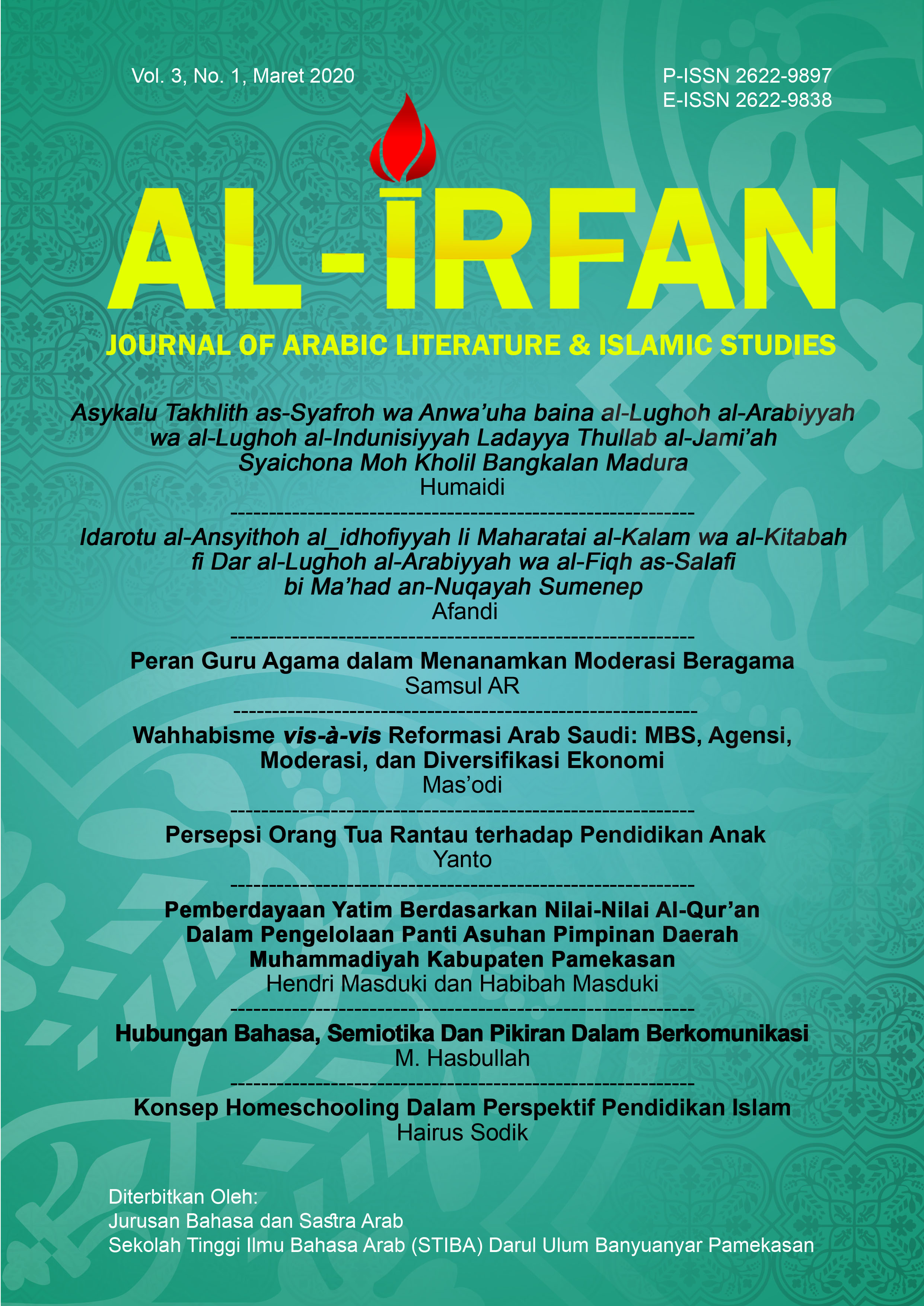Wahhabisme vis-Ã -vis Reformasi Arab Saudi: MBS, Agensi, Moderasi, dan Diversifikasi Ekonomi
DOI:
https://doi.org/10.36835/al-irfan.v3i1.3792Keywords:
MBS, Vision 2030, Wahhabi, ModerationAbstract
This research tries to look at and to analyze social, economic, and also religion political conditions at Saudi in the last few years after Muhammad bin Salman (MBS) launched ideas for 2030 vision. This study will also analyze how the SBM agency as an authority changes the socio-religious construction of the Saudi people which then impacts the existence of Wahhabism and other religious groups in Saudi Arabia. This research uses qualitative research and is analytical descriptive. To explore academic problems in this study, the author uses the theory of authority R.B. Friedman and combined with Pierre Bourdieu's social praxis theory. As a result of this research, SBM as an authority has succeeded in overhauling the system and regulations that have been in force in Saudi Arabia so far, starting from the royal family, oil, and also religious conservatism which has a Wahhabi style. The Specifically for last SBM has never specifically intended to leave Wahhabi, but it will firmly eradicate extremism that arises from puritanical religious dogma, be it from Wahhabis or other religious groups. MBS wants to change Saudi Islam to the Islamic moderate, where all religions, races and cultures are acceptable. All parties must obey, including wahhabi muslim’s-style or other. Key Word: MBS, Vision 2030, Wahhabi, dan Moderation.Downloads
Published
How to Cite
Issue
Section
License
Copyright (c) 2020 Al-Irfan : Journal of Arabic Literature and Islamic Studies

This work is licensed under a Creative Commons Attribution-NonCommercial-NoDerivatives 4.0 International License.
Lisensi :
Al-Irfan: Journal of Arabic Literature and Islamic Studies is published under conditions Creative Commons Attribution 4.0 International License / CC BY 4.0 This license permits anyone to copy and redistribute this material in any form or format, modify, modify, and make derivative works of this material for any purpose, including commercial purposes, so long as they credit the author for the original work.












